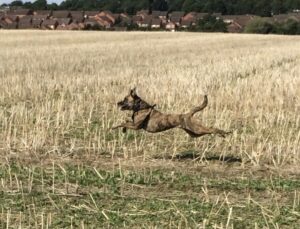With all the hundreds of different dog foods on the market, what do you do if your dog becomes allergic?
Signs of a food allergy in dog include diarrhoea, chronic ear inflammation, gastrointestinal issues, licking their feet or an itchy bum. Lots of things you see in dog food could cause a reaction such as beef, chicken, pork, rabbit, fish, lamb, wheat, eggs and dairy products.
The only way to determine food allergies is to cut out all allergens from the diet and then gradually introduce them back in one at a time, waiting between each one to see if a reaction occurs. This is easier said than done unfortunately. Skin testing is also good if external allergens are suspected.
It is also common for a food that a dog has eaten for years to trigger an allergy. Frequently they need to have been exposed to an allergen for a period of time before symptoms occur so there may not be a dramatic reaction the first time they eat it.
Once some food is found that is tolerated by the dog they should be used on a 2 monthly rotation to try and stop the dog reacting. It is also possible to try a raw diet but if your dog is allergic to a type of animal protein they may not improve. Constant itching can lead to muscle pain so its important to get your dog checked over by Emily at McTimoney Animal Therapy to make sure they stay happy and pain free.
Unfortunately some dogs are just genetically predisposed to allergies but keeping puppies on a varied and rotated diet can help minimise it.
Book a McTimoney Canine Chiropractic Treatment
Areas covered in UK: Worcestershire and surrounding counties.
Book a McTimoney Canine Chiropractic Treatment or Call Emily Walters on 07983 565 438

